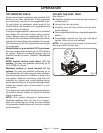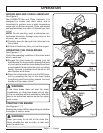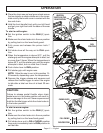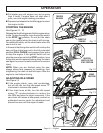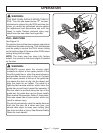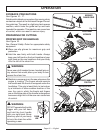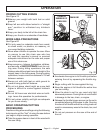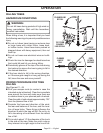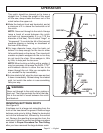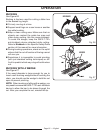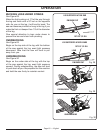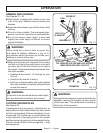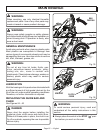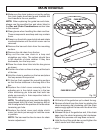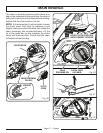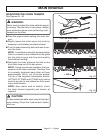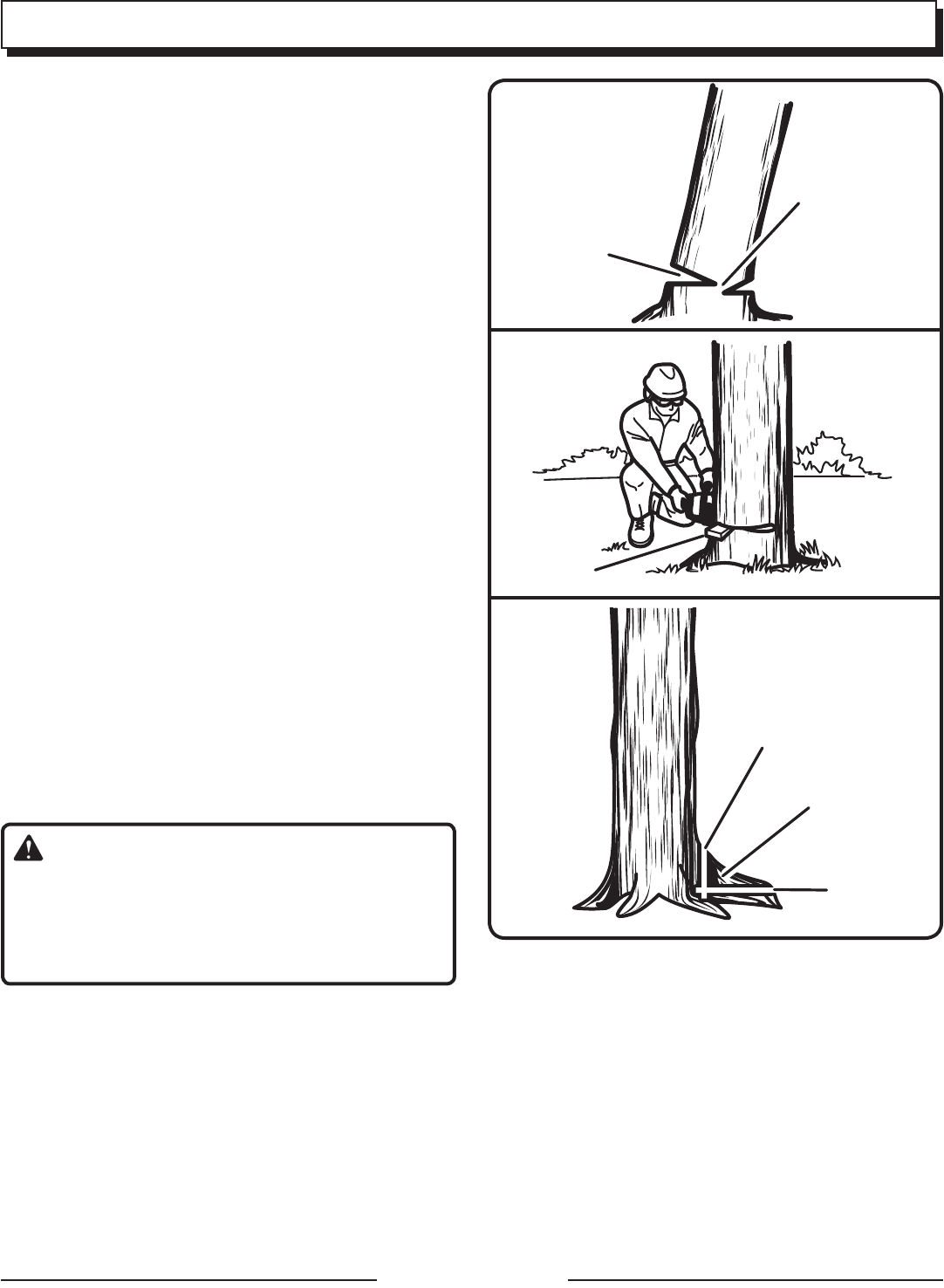
Page 21 — English
WEDGE
Fig. 24
HORIZONTAL
CUT
VERTICAL
CUT
LOOSE
SECTION
Fig. 25
OPERATION
This notch should be cleaned out to leave a
straight line. To keep the weight of the wood
off the saw, always make the lower cut of the
notch before the upper cut.
Make the backcut level and horizontal, and at
a minimum of 2 in. above the horizontal cut of
the notch.
NOTE: Never cut through to the notch. Always
leave a band of wood between the notch
and back cut (approximately 2 in. or 1/10 the
diameter of the tree). This is called “hinge” or
“hingewood.” It controls the fall of the tree and
prevents slipping or twisting or shootback of
the tree off the stump.
On large diameter trees, stop the back cut
before it is deep enough for the tree to either
fall or settle back on the stump. Then insert soft
wooden or plastic wedges into the cut so they
do not touch the chain. Drive wedges in, little
by little, to help jack the tree over.
NOTE: When bucking or felling with a wedge, it
may be necessary to remove the SAFE-T-TIP
®
anti-kickback device to allow the bar to be
drawn through the cut. After you complete the
cut, reinstall the tip immediately.
As tree starts to fall, stop the chain saw and put
it down immediately. Retreat along the cleared
path, but watch the action in case something
falls your way.
WARNING:
Never cut through to the notch when making a
back cut. The hinge controls the fall of the tree,
this is the section of wood between the notch
and backcut.
REMOVING BUTTRESS ROOTS
See Figure 25.
A buttress root is a large root extending from the
trunk of the tree above the ground. Remove large
buttress roots prior to felling. Make the horizontal
cut into the buttress first, followed by the vertical
cut. Remove the resulting loose section from the
work area. Follow the correct tree felling procedure
as stated in Proper Procedure For Tree Felling
after you have removed the large buttress roots.
HINGE
BACK CUT
Fig. 23



